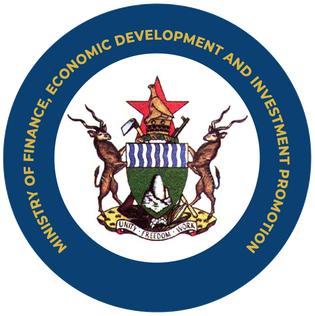
At the centre of Mutare in eastern Zimbabwe rises Dangamvura Mountain. Dividing the city centre from its southern suburbs, and home to a cemetery for State heroes, it is a revered landmark traditionally considered sacred by local communities.
The mountain is “the city’s identity”, says O’bren Nhachi, an environmentalist and native of Mutare.
From November 2021 to February this year, however, the mountain was also the site of a heated standoff between local communities and a small-scale Chinese quarry prospector, Freestone Mines.
In the course of those four months, Freestone went from prospective miner of the mountain to the focus of criticism and a potential legal case, before finally abandoning the project. A statement from the company said it had pulled out in the face of “resistance from different people and stakeholders who are totally against the project”.
The story reveals much about the consequences of companies and governments failing to engage with local communities, and provides lessons for other Chinese companies doing business in Zimbabwe.
An eventful four months
On November 19, 2021, local news site NewZimbabwe reported that Freestone Mines had acquired mining rights at a site on the Dangamvura Mountain for a lease of just US$629 per month. The lease agreement seen by the news outlet agreed to a 10-year lease of 6,5 hectares of land for quarrying.
“The lessee shall pay to the lessor an annual rental of US$7 557 for the use of the site. As an exemption inceptive, the lessee will be exempted from paying rentals during the first eight months of the duration of the lease agreement,” NewZimbabwe quoted the lease as saying.
- Chamisa under fire over US$120K donation
- Mavhunga puts DeMbare into Chibuku quarterfinals
- Pension funds bet on Cabora Bassa oilfields
- Councils defy govt fire tender directive
Keep Reading
Locals in Mutare were outraged, describing the lease as “a joke” to China Dialogue.
Freestone Mines is also alleged to have commenced work without obtaining a permit from the Environmental Management Agency (EMA).
“There was no [EMA] assessment authorising the project to go ahead. We wrote to the Ministry of Mines and Mutare City Council who both confirmed an environmental impact assessment had not been conducted,” Farai Maguwu, director for the Centre for Natural Resources Governance Zimbabwe (CNRG), a civil society group, told China Dialogue.
But Amkela Sidange, the EMA spokesperson, disputed this. “Freestone Mines applied for an EIA [environmental impact assessment] licence from EMA before any activity was commenced on Dangamvura Mountain and an EIA licence was granted,” she told China Dialogue.
Under Zimbabwe’s 2002 Environmental Management Act, no mining activity can go ahead without EMA issuing a licence first. The Act states that failure to secure an EIA licence can result in fines up to $10 million (equivalent to around US$180 000 in 2002, but only US$27 600 today due to bouts of hyperinflation) and imprisonment for up to five years.
Maguwu also contends that the quarrying operation at Dangamvura violated Zimbabwe’s Mines and Minerals Act. The Act prohibits mining within the surveyed limits of any city, town, township or village, and in a 50-metre wide belt outside such limits. Dangamvura Mountain, he argues, sits well within the surveyed limits of Mutare City.
But Qi Ruoxin, director for Freestone Mines, rejects the charges. “We legally had all the permits and documents,” he tells China Dialogue. “We are a law-abiding company.”
Maguwu counters, however, that what permits Freestone Mines did possess were suspiciously backdated. He tells China Dialogue that on November 18, 2021, in response to CNRG’s request for information, Freestone Mines stated that they were waiting for an environmental impact licence. However, a week later, on November 25, Freestone Mines released an environment certificate supposedly issued on September 27.
In February 2022, the CNRG took both Freestone Mines and EMA to court over the alleged infringement.
In the face of public opposition and the threat of litigation, Freestone Mines announced that they were abandoning the project on February 25, 2022.
A statement from Mutare acting clerk Blessing Chafesuka read: “Freestone Mines Pvt Ltd took notice of the resistance from different people and stakeholders who are totally against the project. Freestone Mines has, through its lawyers, given a written notice of its intention to cancel the lease agreement.”
Consultation lacking
“Blasting echoes would’ve cracked city homes; ancestors’ spirits would’ve decreased rainfall, and tripled lightning strikes,” says Jairos Moyo, a Dangamvura township elder who has led indigenous African rituals on the mountain for the last decade. “It’s unthinkable that Freestone Mines didn’t even bother to talk to us first.”
While gaps remain between Freestone Mines’ and CNRG’s accounts of the Dangamvura quarry case, Moyo’s comment cuts to the core of the controversy — Freestone Mines’ lack of prior consultation with local communities.
In a recent article, Shawn Shieh, founder of Social Innovations Advisory, a civil society consultancy, identifies a tendency of Chinese companies operating overseas to take a top-down approach to project development.
This can mean partnering with powerful local actors but overlooking local communities, adopting a “defensive, and even hostile” position to civil society, and emphasising project benefits such as job creation while “often” failing to deal with more difficult issues such as relocation and compensation demands, and creating long-term community consultation and grievance mechanisms.”
Chinese companies have a bad track record on cultural sensitivity in many parts of the world, particularly in Africa, says Stephen Chan, former British diplomat in Africa and now professor of African politics at SOAS, University of London.
“Learning labour law, learning local vernacular language, and holding meetings on an open basis would be a key first stage that Chinese companies should undertake, as well as establishing local centres that bolster health care and education — what is usually called ‘corporate philanthropy’ — but basically anything that demonstrates good will,” says Chan.
He cites the example of neighbouring Zambia where, he says, older generations of settled Chinese migrants have set up their own induction and acculturation courses for newer arrivals.
This seems not to exist in Zimbabwe because authorities are so hungry for foreign investment that they do not want to insist on programmes of sensitisation to local needs and norms, he adds.
For Manson Gwanyanya, a regional researcher for the Business & Human Rights Resource Centre based in Johannesburg, it makes business sense for mining companies to meaningfully consult impacted communities, beyond licences. If disputes arise, communities can actually vouch for mining companies.
“When communities stand with you, you sometimes avoid unnecessary costs,” he says. He points to the example of Kenya, where many big investments made in 2018 have stalled because communities are litigating against corporations that have not consulted them.
But it is “not only the Chinese”, Gwanyana adds. “Every mining corporation must understand that it goes beyond getting a licence from the minister of mines. The communities have to be told adequately what’s going on because it’s their roads you’re using, their water you’re drawing. We lawyers call it prior informed consent.”
A green and people-centred BRI?
In recent years, China has emphasised at numerous high-level events that Chinese companies’ overseas investments should be “high quality”, green and beneficial to all.
The Opinions on Jointly Promoting Green Development of the Belt and Road, a document issued by four government ministries in April this year, outlined an intention to “practice the principles of extensive consultation, joint contribution, and shared benefits”, and “aim for high-standard, sustainable and people-centred progress”.
Similar principles were affirmed at the eighth Forum on China-Africa Co-operation in November last year, which concluded with pledges to support Africa’s green and sustainable development.
But in Zimbabwe, many see patchy implementation of those ideals. Maguwu from CNRG suggests that Chinese companies operating in the country can be divided into two categories. First are large-scale companies which tend to be well regulated and law-abiding.
For example, the Industrial and Commercial Bank of China stepped back from a bid to finance the US$3 billion Hwange coal-fired power plant in the face of local opposition, and shortly before China announced the end of support for new overseas coal power projects.
Secondly, however, are the many small-scale companies, such as Freestone Mines, who, he says, often operate outside the law.
Chan, the ex-diplomat, also sees an inability from Beijing to adequately police Chinese companies abroad.
“Neither the Chinese government at home, nor the Chinese embassies abroad, have comprehensive guidelines as to behaviour in a new country. [For example] induction into local labour law is extremely important, but also extremely neglected.”
For Lenin Chisaira, lawyer and director of Advocates4Earth in Zimbabwe’s capital Harare, the conduct of some Chinese mining corporations in Zimbabwe defeats Beijing’s promised ethics.
“China has been making great strides in green policies on the home front, but in foreign investments, there are very problematic developments,” Chisaira tells China Dialogue.
With such a diverse range of Chinese actors and investors active overseas, the mismatch between Beijing’s stated intentions for a green and inclusive Belt and Road and the reality on the ground will likely play out for some time. — China Dialogue










